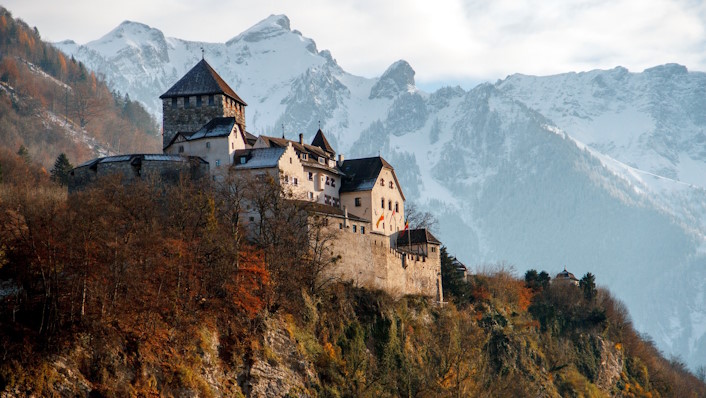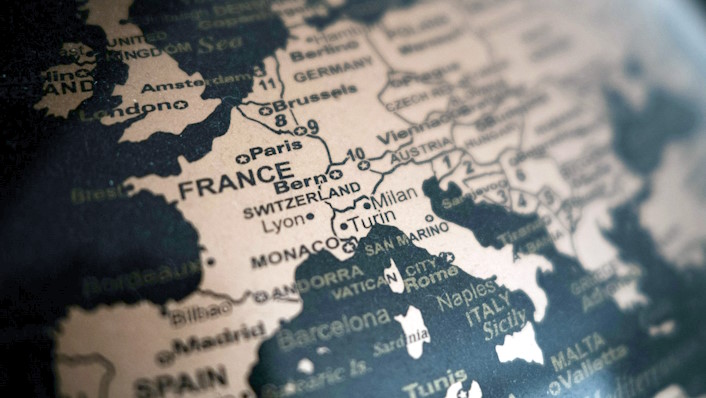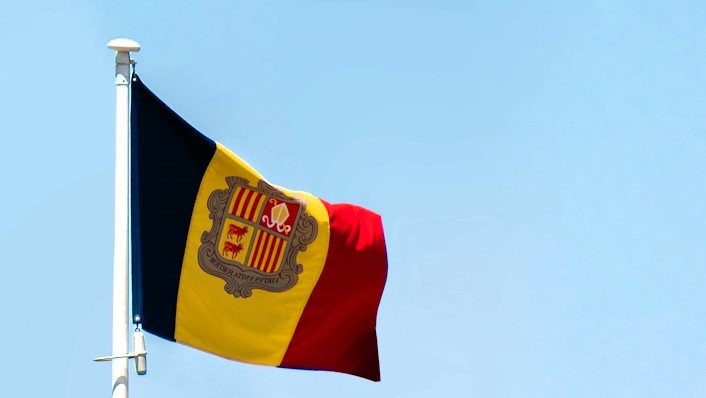7 Hardest European Countries to Get Citizenship in 2024
If you’re dreaming of passport from one of these places, brace yourself for a long, tough ride.

Most European countries allow foreigners to apply for citizenship after 5-10 years of continuous residence, but a few have much tougher requirements. Aspiring applicants are usually required to demonstrate sufficient command of the local language, pass an exam on the country’s history and culture, and in some cases, even renounce their former citizenship, although the latter is rarely enforced.
We found the seven most difficult countries in Europe to get citizenship. These countries have stringent naturalisation requirements and rigorous application processes that make it challenging for newcomers to become permanent residents. Although some make the transition easier if you marry someone from that country, prove ancestry, or invest a sizable amount of money, these options are often not available to most people, and the path to becoming a citizen is often arduous for the majority of hopeful applicants.
7. Austria
Citizenship eligibility: 10 years residency
A fairly large percentage of the people living in Austria are foreign-born, but very few of them ever obtain Austrian citizenship and the right to vote in elections. That’s because of Austria’s tough immigration rules, which include one of the longest naturalisation processes of any European country. While children automatically become Austrian citizens if their mother is Austrian, non-Austrian nationals have to go through a lengthy process to apply for citizenship.
Applicants looking to acquire Austrian citizenship face several criteria. You must obtain residence in Austria and then live in the country uninterrupted for 10 years. Furthermore, you need to demonstrate a fixed and regular income within the last 6 years before applying. Additionally, you must learn German to the required B2 level. Very often, individuals also need to renounce their existing citizenship, and some applicants may need to engage in volunteer work as part of the process.
The Austrian citizenship application process involves high fees, and the strict rules of the process may be why Austria has one of the least sought-after citizenships in Europe.
6. Switzerland
Citizenship eligibility: 10 years residency
Switzerland has historically been a coveted destination for migrants. Approximately 40% of the country’s population has a migration background, and 25% are foreign passport holders. A large part of them are presumably pursuing citizenship, but becoming a Swiss citizen is not exactly straightforward. Like in neighbouring Austria, Switzerland follows the “ius sanguinis” principle, where citizenship is primarily determined by paternal or maternal descent. Newcomers, however, will have to undergo a lengthy naturalisation process.
Applying for Swiss citizenship is open to non-nationals who have resided in Switzerland for at least ten years, with a minimum of three years within the last five years before applying. Each canton and municipality has its unique set of rules for granting citizenship, which means the process varies slightly between them. In general, applicants must prove their assimilation into Swiss society, which includes proficiency in one of Switzerland’s official languages and a basic knowledge of the country’s history, politics, and customs. Moreover, applicants must respect public security, public order, and Swiss values.
Interestingly, decisions on naturalisation requests are made at the local level by the communities where applicants reside rather than by federal authorities. This more “democratic” approach allows local residents to have a more personal understanding of the candidates. It enables them to determine whether the applicants truly embody the values and qualities that align with becoming Swiss citizens. But it also means you have to be well-liked in person, not just on paper. An example of this local decision-making is seen in the case of a Dutch woman who faced denial of naturalisation twice because she publicly expressed criticism towards certain aspects of Swiss tradition and culture.
5. Monaco
Citizenship eligibility: 10 years residency
Monaco is the second-smallest country in the world, with a population of around just 38,500 people. Three-fourths of the microstate’s residents are foreigners, but only around 9,700 people worldwide hold Monegasque citizenship. The majority of the Monegasque obtain citizenship through descent, but newcomers can also acquire nationality through naturalisation under certain conditions.
Citizenship of Monaco is governed by Law No. 1.155 of December 18, 1992 on Nationality. According to the law, foreigners looking to become Monégasque citizens are required to have resided in Monaco for at least 10 years since the age of 18 and after an “investigation of the applicant’s morality and situation”. Furthermore, the application must renounce any foreign nationality and no longer be required to perform national service abroad. Alternatively, foreigners can receive citizenship if the Prince deems them “worthy of this favour” and chooses to waive the requirement.
While these requirements sound similar to Switzerland and Austria, the main challenge for newcomers lies in finding a place to live in Monaco, which has the world’s most expensive property market. This means Monegasque citizenship is practically only available to very wealthy individuals, although the law itself does not discriminate based on financial status. Additionally, all applicants must secure approval through a “sovereign order,” which means the monarch has the right to reject any application.
4. Andorra
Citizenship eligibility: 20 years residency
Residency in the small Pyrenean Principality is highly sought-after because of the country’s favourable tax system and high quality of life. In fact, the country’s appeal is so strong that it’s mostly inhabited by foreigners, who make up two-thirds of the population, with Andorrans constituting a minority and being outnumbered primarily by Spanish, Portuguese, and French nationals. However, despite the sizable expatriate community, only a small number of foreign residents ultimately end up as naturalised Andorran citizens, with statistics showing an annual count of only around 100 to 200 successful applicants per year.
Visiting Andorra for skiing or tax-free shopping is one thing, but establishing residency in the country, which is the initial step toward obtaining citizenship, is more challenging. Non-nationals wanting to live in Andorra have three main pathways for entry: through investing around €400,000, taking up self-employed activities, or securing regular employment in sectors like the country’s service industry. While these pathways sound reasonable, the high housing in the country cost makes it difficult for the last two groups to get started.
Those aspiring to become Andorran citizens via naturalisation must reside permanently in Andorra for a minimum of 20 years. In other words, you must really want Andorran citizenship. Applicants are required to undergo an exam assessing their proficiency in the Catalan language, as well as their knowledge of Andorra’s history and geography. A less known and much faster path to citizenship is available through marriage to a native Andorran citizen, but of course, you’ve got to find that special someone first.
3. Liechtenstein
Citizenship eligibility: 30 years residency
The Principality of Liechtenstein has a population of only approximately 40,000 people and a landmass of only 160 km2. But unlike similar European micronations like Monaco, where foreigners outnumber nationals, Liechtensteiners actually hold the majority in their country, accounting for about 65% of the residents. However, this does not mean foreigners from far and wide are not interested in moving there, as the scenic Alpine country offers a captivating blend of breathtaking landscapes, high quality of life, and, of course, attractive tax incentives.
The country maintains a cautious approach to immigration as it wishes to preserve its cultural heritage and identity. This dedication to tradition also extends to its cautious citizenship regulations. Individuals born to at least one Liechtensteiner citizen parent are automatically given citizenship at birth, but non-nationals can only apply for citizenship after 30 years of residence, according to the country’s Erwerb und Verlust des Landesbürgerrechtes. A faster way to acquire citizenship is through marriage to a Liechtensteiner citizen, which requires at least five years of marriage and 10 years of living in the country.
2. San Marino
Citizenship eligibility: 30 years residency
San Marino is Europe’s second smallest nation-state, housing a population of just 35,000 people, primarily composed of national Sammarinese and Italian citizens. Despite maintaining a relatively low profile in international media, San Marino does attract a fair amount of Italian business people because of the country’s low corporate and personal tax rates.
Getting residency in San Marino is fairly easy if you open a company or purchase a property in the country, but acquiring Sammarinese nationality is another story. San Marino, alongside Liechtenstein, takes the lead with the longest citizenship timeline in Europe by requiring a minimum of 30 years of residency within its borders. It’s a long test of patience, but not only that, two-thirds of the Grand and General Council of San Marino must also be in favour of approving your application. All successful applicants are required to take an oath of allegiance to the Republic before the Secretary of State for Internal Affairs and the Captains Regent.
1. Vatican City
Citizenship eligibility: Forget about it
Home to a population of only 450 people, Vatican City is the world’s smallest country by both size and number of inhabitants. This exclusive enclave also has Europe’s, if not the world’s, most elusive passport. Interestingly, the City has no taxes, no restrictions on imports or exports, and there are no customs fees, which makes it appealing from an “earthly” perspective. But only a select few have the chance of ever obtaining Vatican citizenship, and the Pope isn’t exactly looking to build high rises in his neighbourhood.
Unlike in most European countries, where citizenship is generally based on birthright, marriage, or naturalisation, Vatican citizenship is granted exclusively based on jus officii, meaning it is tied to specific appointments in service to the Holy See. Spouses and children of citizens can also acquire Vatican citizenship if they live together in the City. This means it’s technically possible to become a Vatican citizen by birth or marriage.
However, Vatican citizenship is limited to the duration of the work in the City, which means it ends after the individual’s appointment ends, also for the dependants. Those who lose Vatican citizenship and do not hold citizenship elsewhere automatically become Italian citizens, as stipulated in the Lateran Treaty.
To become a citizen of Vatican City, you must be a devout Catholic and have substantial professional experience. Holding specific positions, such as Cardinals residing in the Vatican, diplomats of the Vatican, or members of the esteemed Pontifical Swiss Guard, also grant citizenship. With just a handful of citizens residing within its walls, Vatican City remains a truly exceptional and exclusive destination.
FAQs
What are the easiest European countries to get citizenship?
Most European countries let you apply for citizenship by naturalisation after 5 years of living in the country and passing the civic integration test, including Portugal, Sweden, Ireland, and many others.
Furthermore, millions of people worldwide, particularly in the Americas, have the opportunity to claim citizenship by descent from their European ancestral country, going back up to 1, 2, or even 3 generations. This process doesn’t require residency, although it may involve some processing time.
Which passport is considered the “worst” in Europe?
If measured solely by the number of countries the passport holder can visit without a visa, then Belarus, Bosnia and Herzegovina, Albania, and Moldova rank as the worst.
Where can Americans get European citizenship the fastest?
Jus sanguinis – the right of blood – or citizenship by ancestry is usually the fastest way for Americans and other nationalities to claim citizenship in a European country, as it’s estimated that around 80% of Americans have European forefathers.
Many Americans descend from countries that only grant citizenship to the first generation, like the U.K. and Germany. However, some European countries, such as Latvia, Lithuania, Poland, Hungary, Italy, Bulgaria, and Romania, offer citizenship options for up to third generation or more. If your bloodline goes back to these countries, there’s a high chance you can claim citizenship in Europe.
For example, it’s estimated that 75 million Americans may qualify for Spanish citizenship after one or two years of residency, while 17 million can claim Italian citizenship. In Hungary, there is also no theoretical limit to obtaining citizenship if you can prove your ancestor was Hungarian.



